heart
Latest
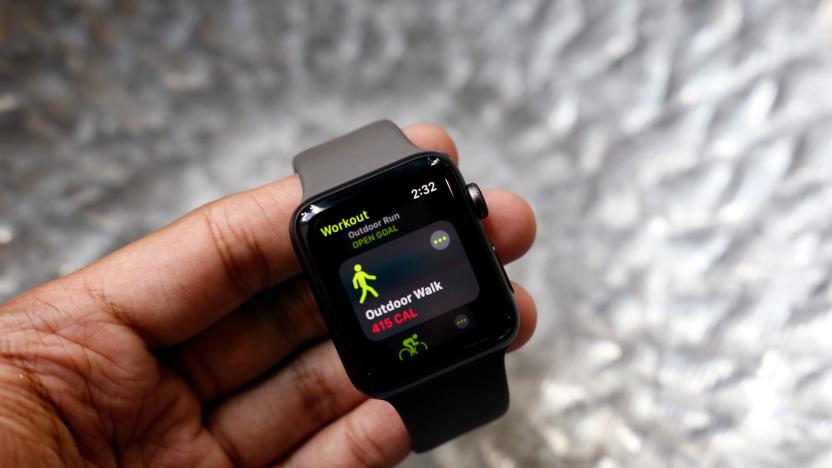
Data from wearables helped teach an AI to spot signs of diabetes
In a new study conducted with the UCSF Department of Medicine, a neural network developed by a startup called Cardiogram was able to detect diabetes with nearly 85 percent accuracy, just by looking at people's heart beats over time. And the kicker? As always, the study didn't require any fancy medical hardware — just Apple Watches, Fitbits, Android Wear devices, and other wearables with heart rate sensors.
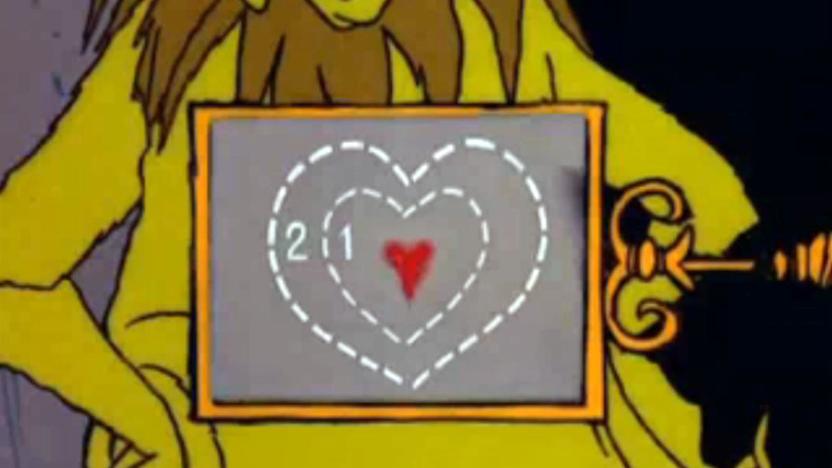
Researchers can use the size of your heart to unlock a PC
Most biometric security has one inconvenience: you have to take an active step to sign in, whether it's putting your finger on a pad or staring at sensors. Wouldn't it be nice if simply being near your device was enough? It might happen. Researchers have created a computer authentication system that uses your heart's shape and size to sign in. It uses low-level Doppler radar to continuously scan your heart's dimensions, granting access so long as you're in the right place. In other words, Cindy-Lou Who couldn't hijack the Grinch's PC when he steps away for a coffee break.
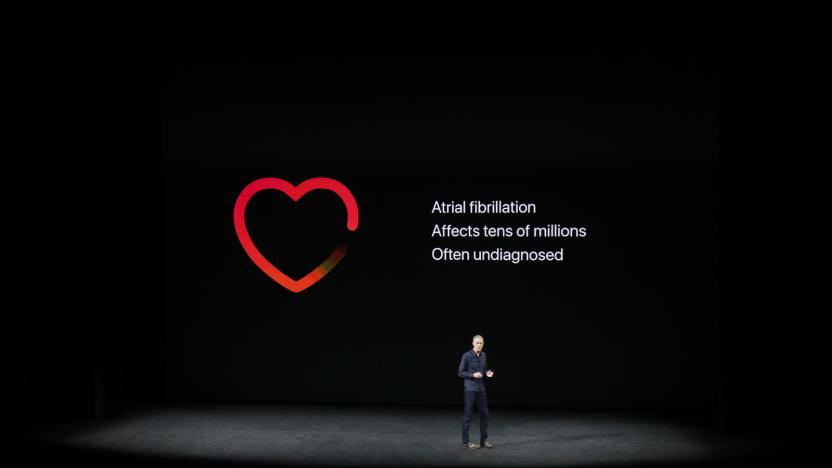
Apple details new heart-tracking features for Watch
Apple is expanding the health-monitoring features of its Watch line with a focus on the heart. The Apple Watch is getting an improved heart-rate monitoring system that allows users to raise their wrists to see their heart rates and fresh metrics, among a raft of other new features. The Watch will also notify wearers if their heart rate jumps up when they're not actually exercising, signaling a potential problem.
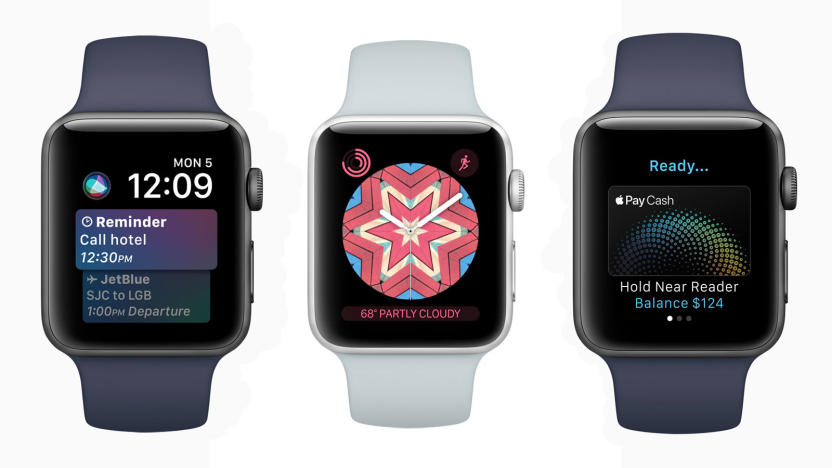
Apple watchOS 4 comes to your wrist September 19th
It won't be too long before you can give watchOS 4 a spin -- Apple has announced that the upgrade will arrive on September 19th for all Watch models. This isn't as dramatic a release as last year's (which added on-device apps and a revamped interface), but it has more than a few tangible improvements, particularly if you're a health or fitness maven -- including a few that weren't known until now.
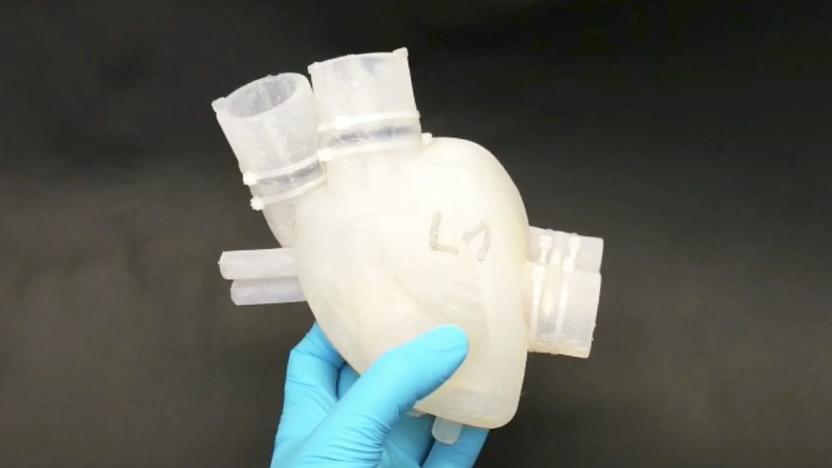
3D-printed silicone heart beats like the real thing
Advanced 3D printing and manufacturing techniques that can produce soft machines could save a lot of lives in the future. They could be used to make not just soft robots for search and rescue, but also temporary organs for people on the transplant waiting list, like the artificial heart created and tested by a team of researchers from ETH Zurich. The researchers have developed a silicone heart that beats like the real organ does using a 3D-printing, lost-wax casting technique.

Light-sensitive bacteria could save you during a heart attack
Heart attacks are frightening by themselves, but they're made worse by the potential for lasting damage. Even a brief interruption to blood flow could permanently destroy vital tissue that keeps your heart beating as usual. However, there might be a way to mitigate or even prevent that damage. Scientists have discovered that a light-sensitive bacteria, synechococcus elongatus, can keep oxygen coming in the midst of a heart attack. Much like a plant, the bacteria both draws on photosynthesis for energy and turns both CO2 and water into oxygen. If you expose it to light soon after the attack, you can maintain oxygen levels and increase the heart's blood-pumping ability after the attack is over.

AI can predict if you'll die soon by examining your organs
When not stealing blue collar jobs, robots are becoming Dr. House, diagnosing maladies like breast and skin cancer with aplomb. Scientists at the University of Adelaide have pushed it to a morbid new level, however, with an AI system that can tell if you're going to die. By analyzing CT scans from 48 patients, the deep learning algorithms could predict whether they'd die within five years with 69 percent accuracy -- "broadly similar" to scores from human diagnosticians, the paper says.

A 3D-printed patch could help you recover from a heart attack
Scientists have dreamed of easily patching up heart tissue in the wake of heart attacks, but there are always gotchas: for example, it's no mean feat to replicate the complex structures of real tissue. However, there may be a solution in sight. Researchers have produced a 3D-printed cell patch that can heal scarred heart tissue. The team used laser-based bioprinting to fit stem cells (based on adult human heart cells) to a matrix developed around a 3D scan of heart tissue's native proteins. When those cells grew, the matrix not only replicated the structures of regular heart tissue (down to 1 micron) but started beating in sync. And the early results are very promising.
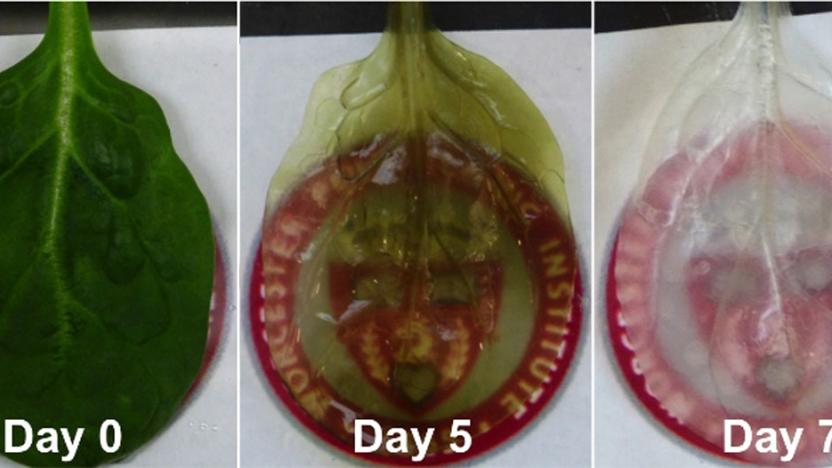
Scientists turn spinach into a farm for human heart cells
In the future, you might not have to resort to exotic materials to create heart cells -- you could just raid your grocery store's produce section. Scientists have invented a process that turns spinach leaves into farms for functioning human heart cells. The team started by pumping a detergent solution through the spinach, stripping it of its plant cells and turning it into a ghostly shell made mostly of cellulose. After that, they cultured heart cells on the remaining structure, sending both fluids and microscopic beads through the vegetable's now-empty veins in order to feed the new cells.

Watson helps treat heart disease by looking at medical images
IBM's Watson technology has helped doctors before, but usually by poring through databases before offering its advice. Now, it's ready to look at the patients themselves -- or rather, their body scans. It's following up on past promises by launching Watson Clinical Imaging Review, its first picture-based cognitive computing solution. The AI platform can sift through ultrasounds, x-rays and other medical data to both fill out health records and identify patients who might need critical care.

ICYMI: A soft robot sleeve to keep your heart going
try{document.getElementById("aol-cms-player-1").style.display="none";}catch(e){}Today on In Case You Missed It: A soft robotic device made by Harvard and Boston Children's Hospital researchers has been tested on pigs and so far, seems quite promising in treating heart disease. The robotic heart wraps around parts of existing tissue and helps squeeze, keeping the blood moving. But unlike other existing devices that are inserted into the heart, this just goes over the top. Its makers believe that will lead to better outcomes for patients that use it, since cycling blood through a medical device can lead to all kinds of complications, from infection to blood clots. No word yet on when they'll begin tests in humans.
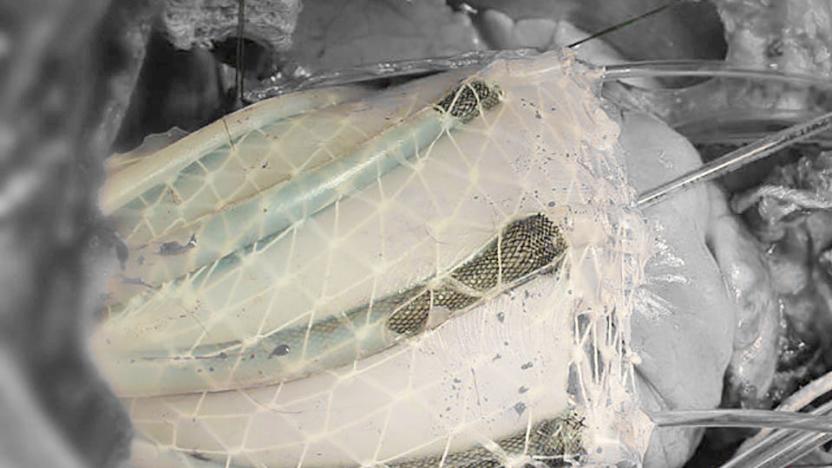
Soft robot wraps around your heart to help it beat
Researchers from Harvard University and Boston Children's Hospital have developed a breakthrough "soft robot" device that might improve your odds of surviving a heart attack. Unlike mechanical devices inserted into heart valves, it's wrapped externally around the heart, where it pumps and twists to assist cardiovascular function. "Most people with heart failure do still have some function left; one day the robotic sleeve may help their heart work well enough that their quality of life can be restored," says co-author and cardiothoracic surgeon Frank Pigula.

ICYMI: Treat all your wine right with a $1,500 fridge
try{document.getElementById("aol-cms-player-1").style.display="none";}catch(e){}Today on In Case You Missed It: A wine fridge called Plum can scan your wine bottles, seals so they stay fresh and then calibrates the temperature inside for maximum deliciousness of pour for every glass. Downside? It's $1,500 so you could take a vacation to wine country instead. Meanwhile, Harvard scientists announced a 3D-printed heart on a chip that has integrated sensors, so it can be used to test medications, which should rapidly accelerate medical studies. The most detailed Milky Way Galaxy yet is here. The particle accelerator on a chip talk at the SLAC lab is here and the Singapore driverless bus news is here. For drones attempting a lightbulb change, go here. As always, please share any interesting tech or science videos you find by using the #ICYMI hashtag on Twitter for @mskerryd.

Skin-grown cells could help you recover from heart attacks
Scientists have taken numerous shots at repairing hearts following heart attacks, but an experimental approach might do a better job than most. Japanese researchers are developing a technique that repairs hearts using cells grown from the skin of a genetically similar donor. If you convert stem cells into heart cells and inject them into affected areas, they can replace damaged tissue and help the organ pump more like it did before the attack.

ICYMI: Hawaiian crows are our new favorite animal
try{document.getElementById("aol-cms-player-1").style.display="none";}catch(e){}Today on In Case You Missed It: Scientists filmed young Hawaiian crows and discovered that they're so smart, they figured out how to use tools to get food without ever having been taught by adult crows. There are very few Alala in the world, but some are about to be released back into the wild so researchers are excited they'll bring their stick engineering ways with them.

Future heart defibrillators could save lives with light pulses
Scientists think that beams of red light could restore normal heartbeat functions in humans, replacing the use of painful electric shocks. Researchers have already tested this on animals and hope to make — incredibly — an optical defibrillator. Biomedical engineering professor Natalia Trayanova, based at John Hopkins University said that with this tech, "light will be given to a patient who is experiencing cardiac arrest, and we will be able to restore the normal functioning of the heart in a gentle and painless manner."

ICYMI: The dogbot and a heart strap that beats surgery
try{document.getElementById("aol-cms-player-1").style.display="none";}catch(e){}Today on In Case You Missed It: Boston Dynamics introduced a new robot to the lineup and this one is both the smallest yet, and most adorable. The SpotMini is just two feet tall but in the video Boston Dynamics released, shows it can do dishes, throw cans away and creep around for a good 90 minutes on an electric charge. Meanwhile the EPFL designed a new medical device that looks not-entirely unlike an old school slap bracelet, except it's made of silicon and is designed to grip and squeeze the aorta, keeping the heart beating while a patient might be waiting for a heart transplant. Theater fans will want to know about New York's decision to ban robot buyers; while politically-minded folks (not already talking about Great Britain's vote to leave the EU) will want to hear about C-SPAN's decision to broadcast Periscope videos of the Democrat's sit-in. As always, please share any interesting tech or science videos you find by using the #ICYMI hashtag on Twitter for @mskerryd.

FDA approves 'world's smallest' pacemaker for heart patients
As consumer technology has trended smaller and thinner, medical devices have done the same. And now, the first transcatheter pacemaker has been approved for use with heart patients in the US. Medtronic gained FDA approval for its Micra TPS pacemaker, the first device to employ the miniaturized pacing tech to be approved by the US government. The company is calling the device the "world's smallest pacemaker," measuring just a tenth of the size of traditional technology. It's about the size of large vitamin.

Gene test spots all known inherited heart conditions
You might never have to worry that you'll fall victim to a heart condition passed along by your family. Researchers have developed a blood test that can reliably detect all known inherited heart problems, like genetically-based arrhythmia -- if doctors know about it, they can spot it. Previous tests only looked at a handful of genes and were only useful in certain circumstances, but the new technique identifies flaws in all 174 genes linked to the potentially life-threatening issues.

ICYMI: 7-D heart MRI, astronaut cups and tech tats
#fivemin-widget-blogsmith-image-906391{display:none;} .cke_show_borders #fivemin-widget-blogsmith-image-906391, #postcontentcontainer #fivemin-widget-blogsmith-image-906391{width:570px;display:block;}try{document.getElementById("fivemin-widget-blogsmith-image-906391").style.display="none";}catch(e){}Today on In Case You Missed It: NASA just shipped the astronauts on the International Space Station a cup that will let them almost drink like earthlings. GE announced scanning tech that would reveal the intricacies of the heart far quicker than conventional MRIs. And temporary tats that can monitor health and beam the information right to a doctor are here, coming to sick little people or elderly folks someday. If you've ever been woken up a couple times a night in a hospital, so a nurse could loudly check your vitals, you know what a win these could be.







